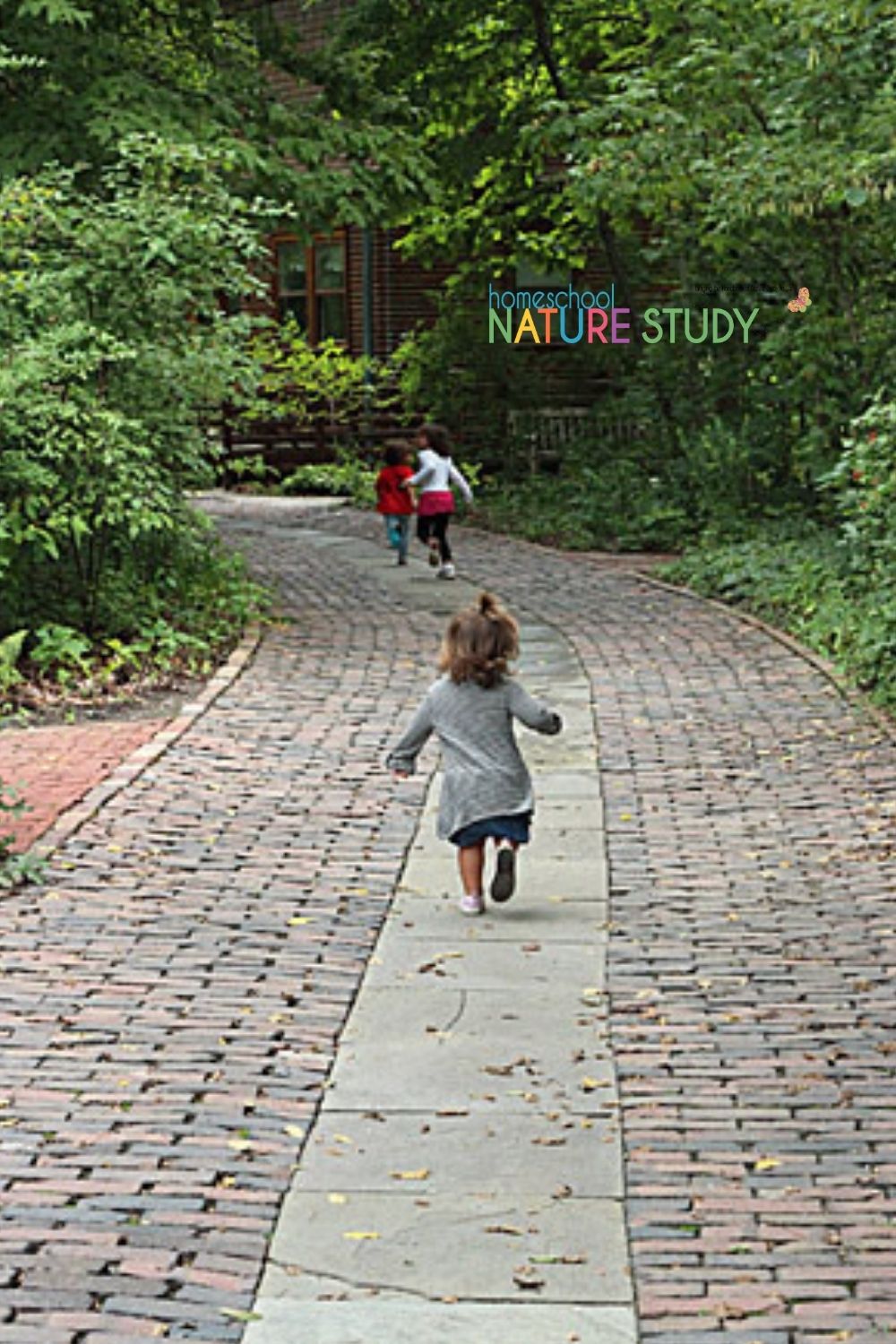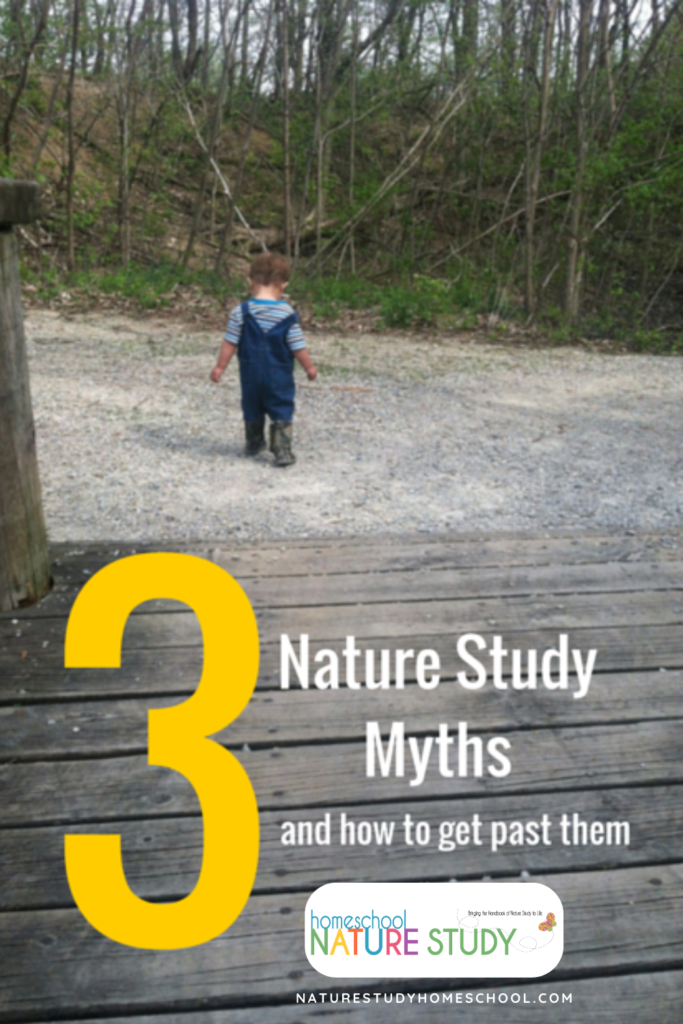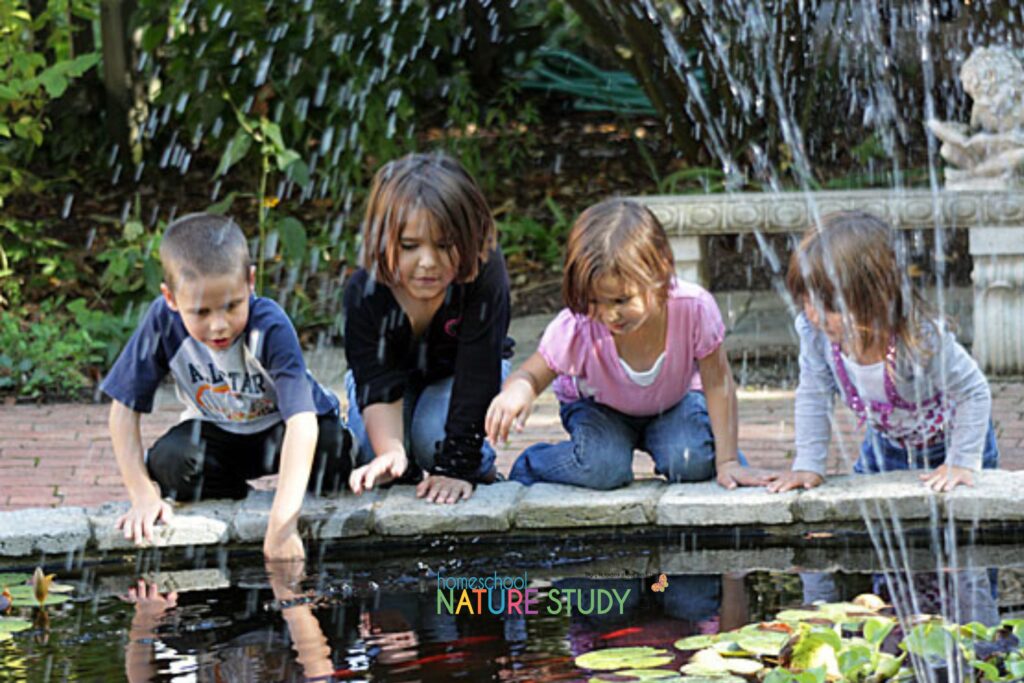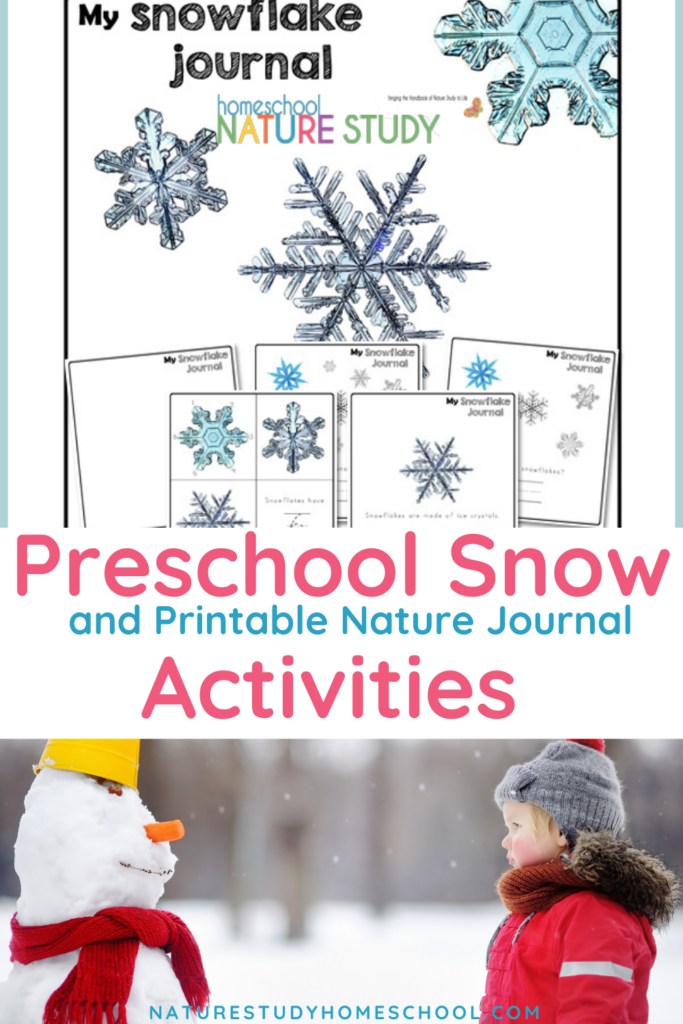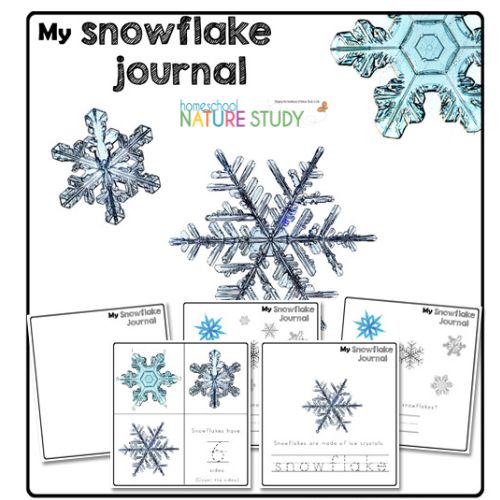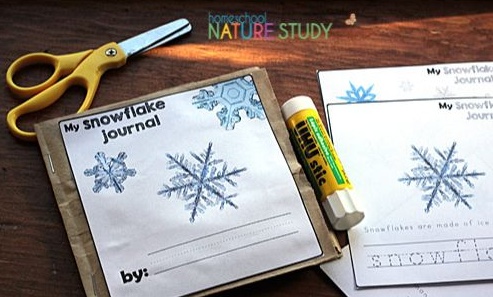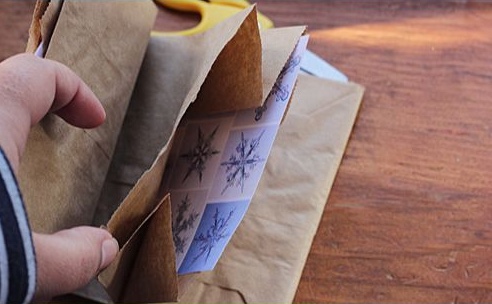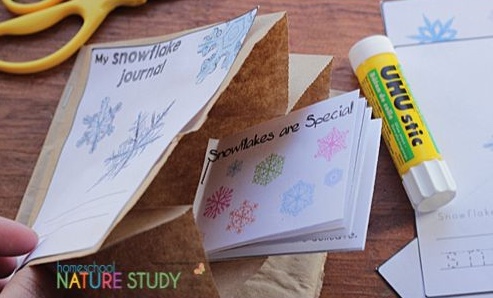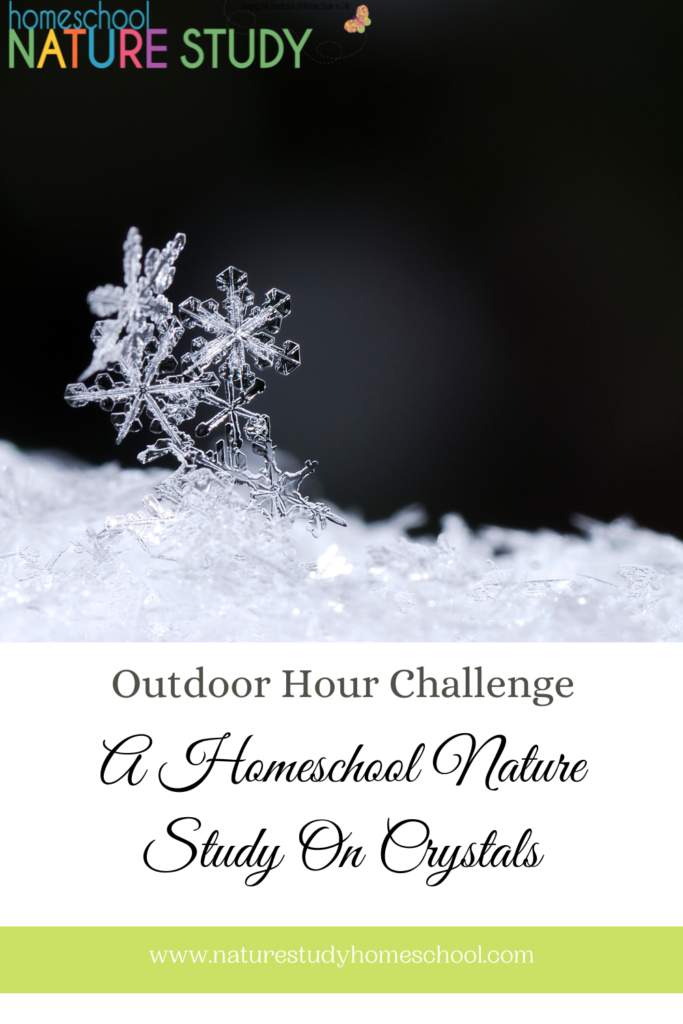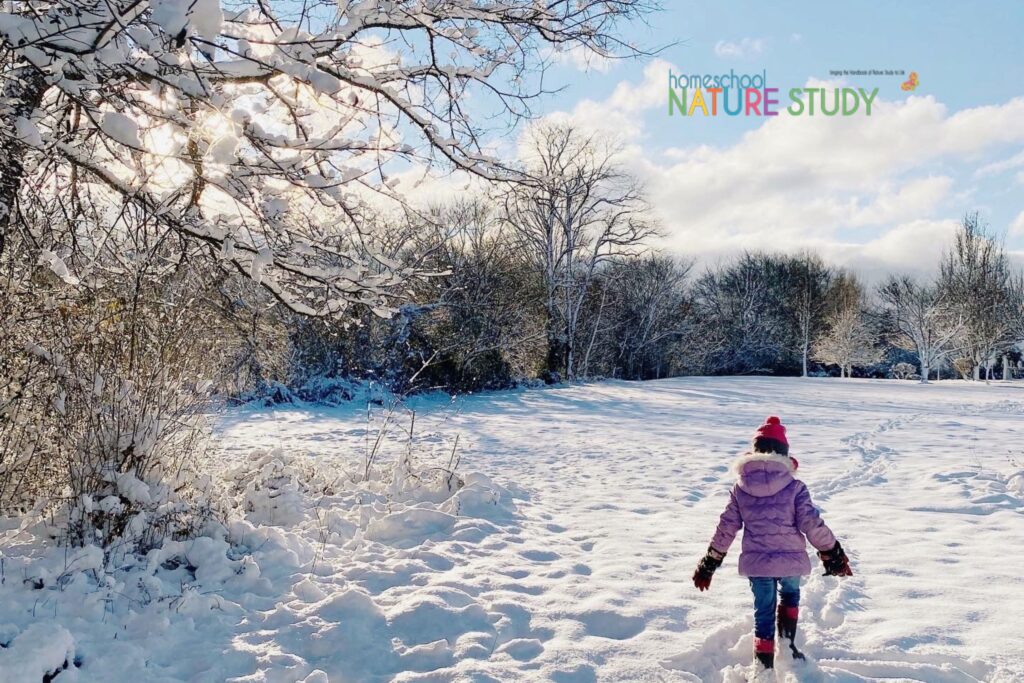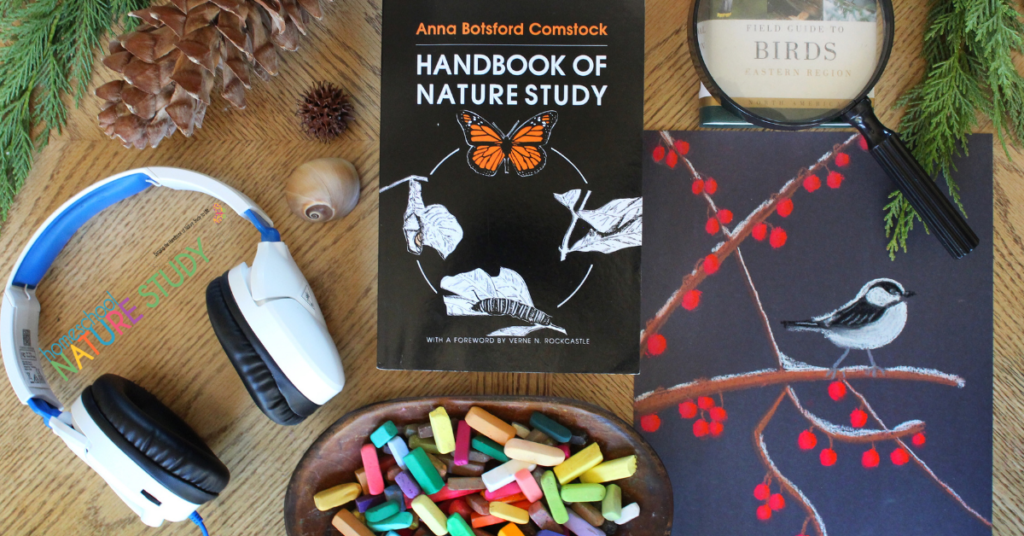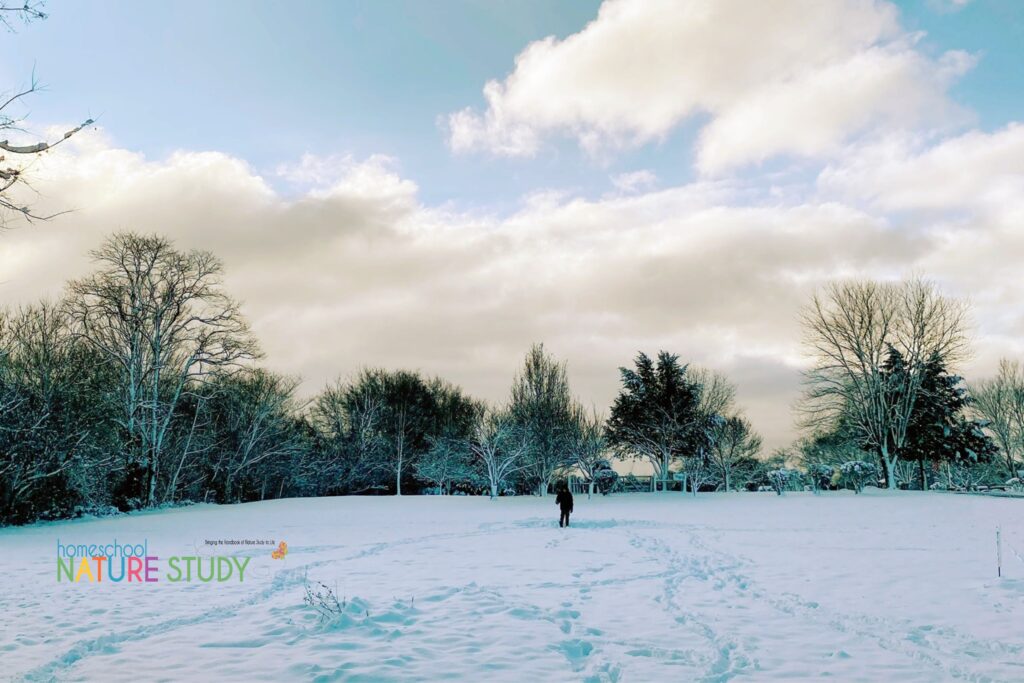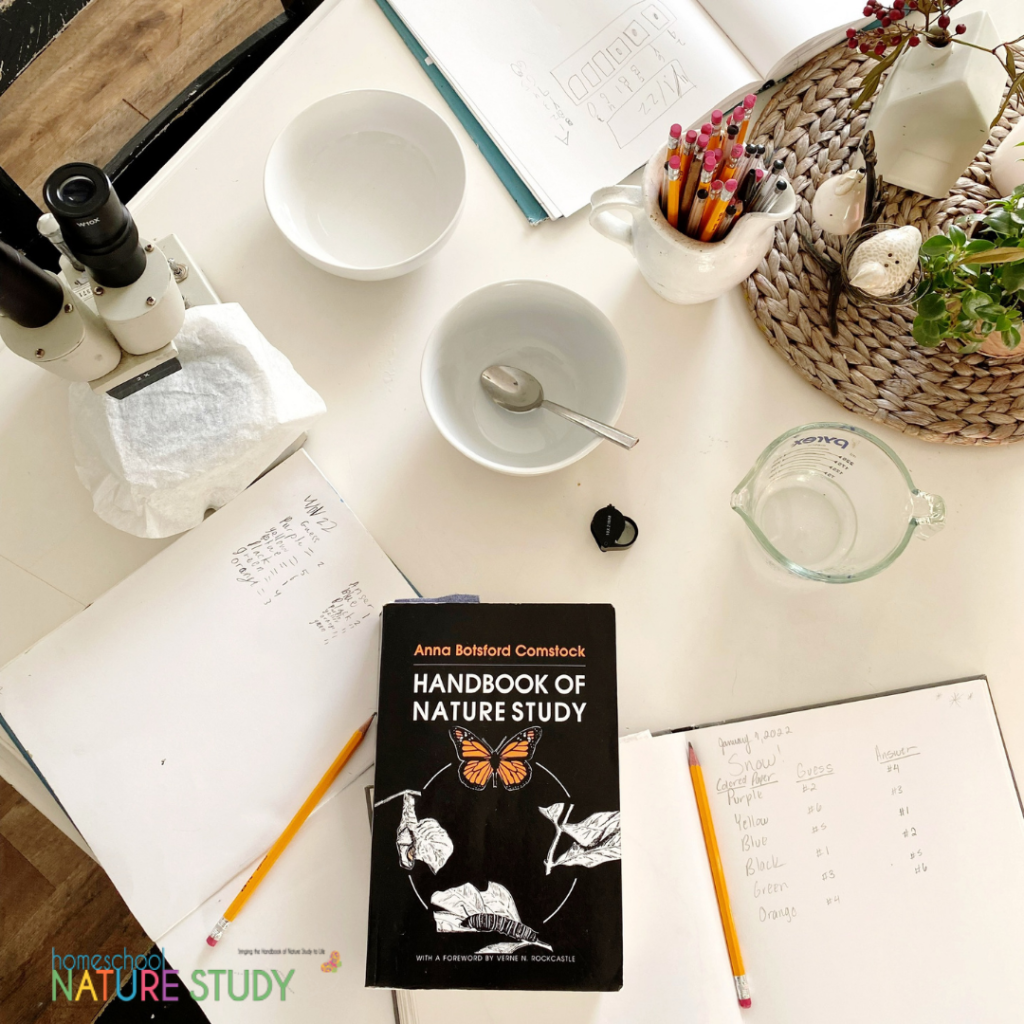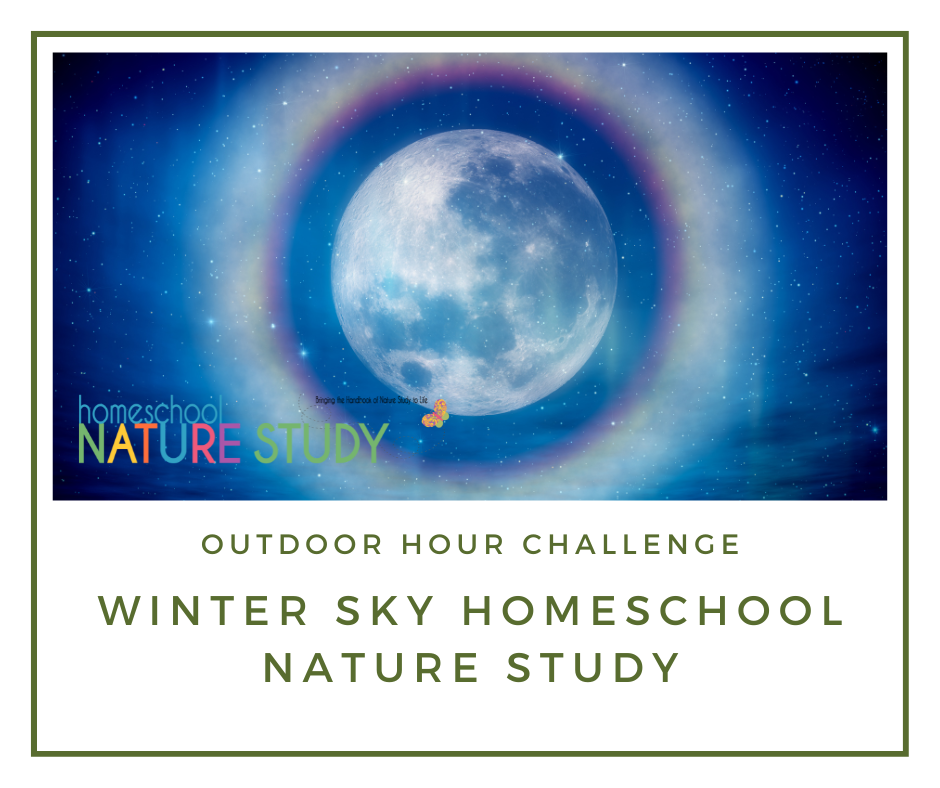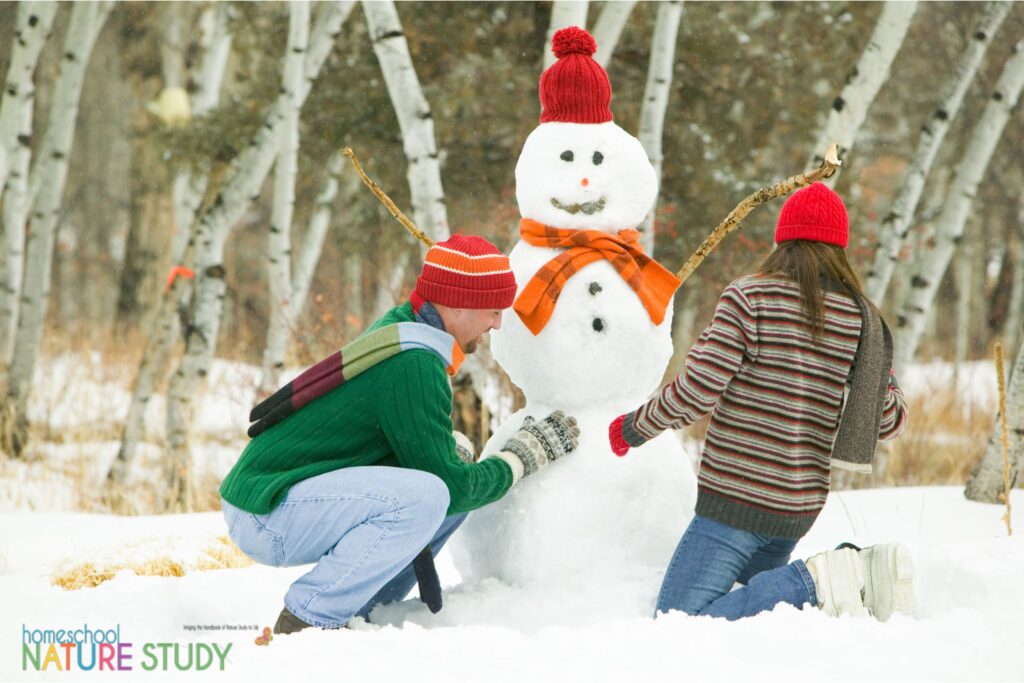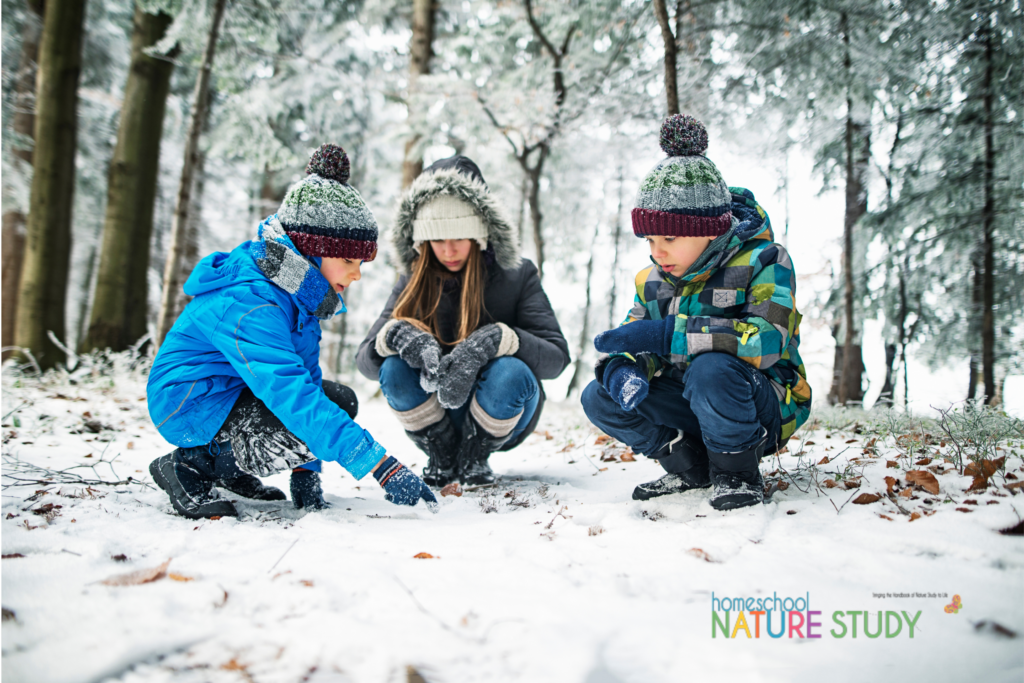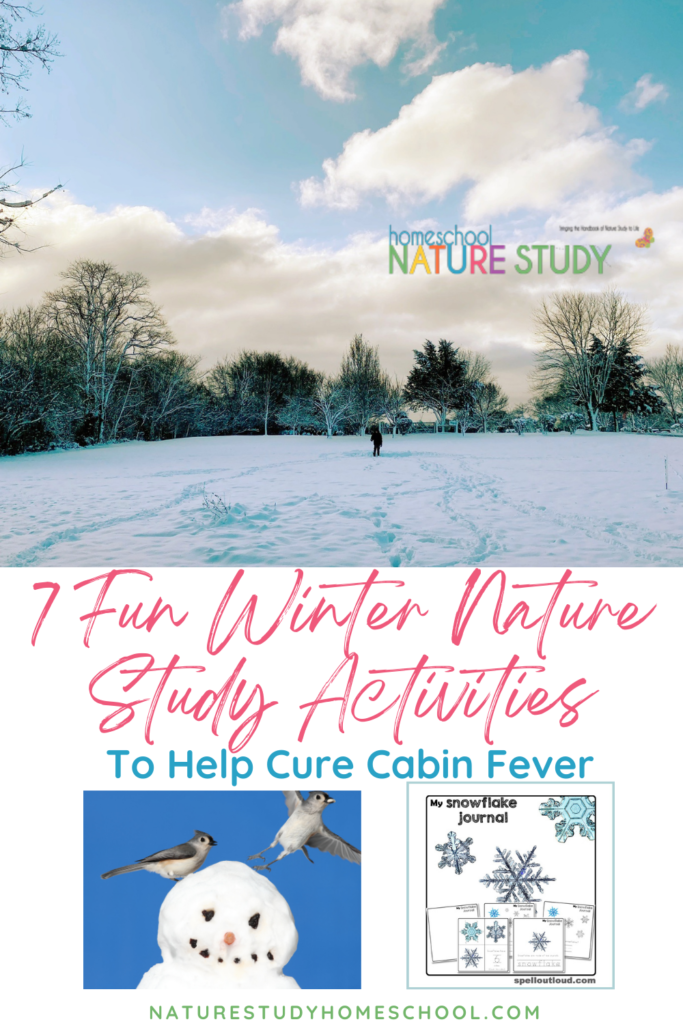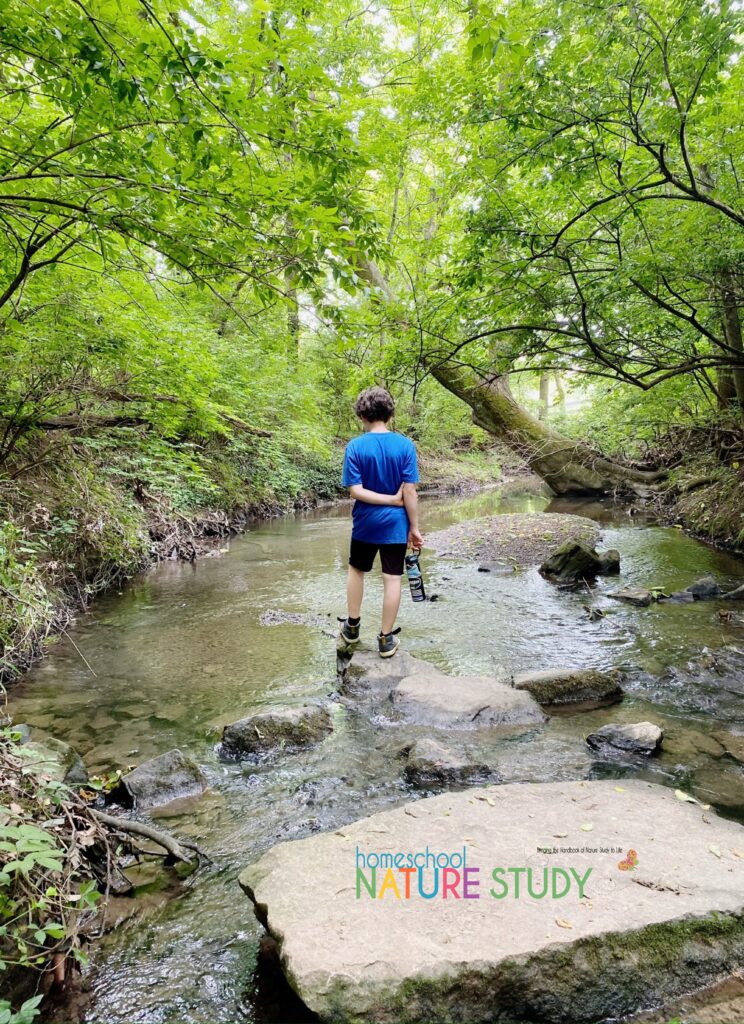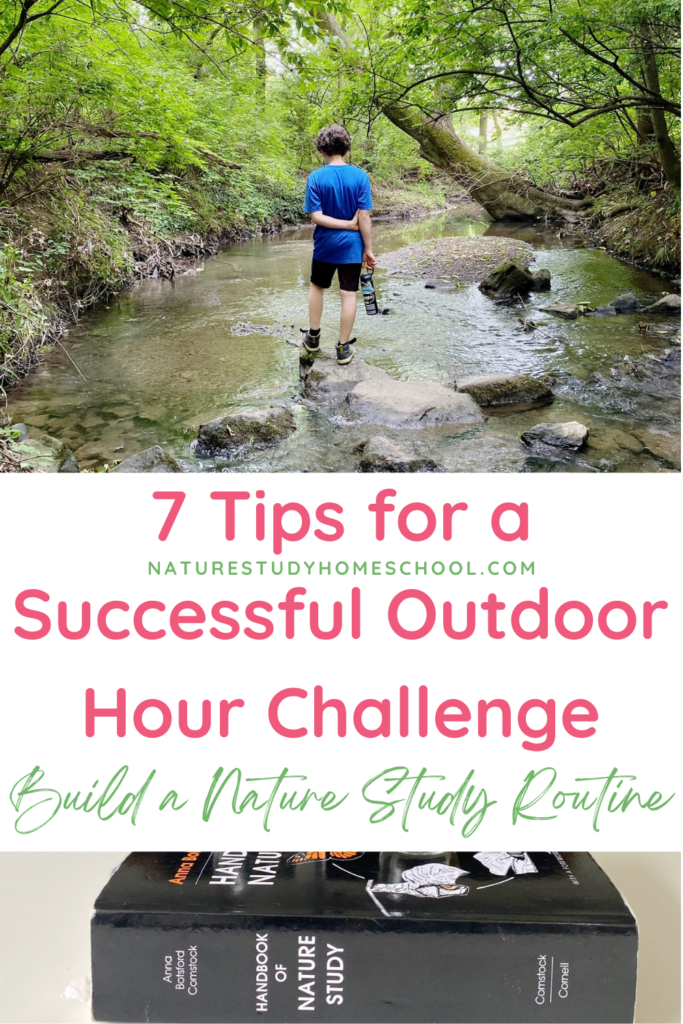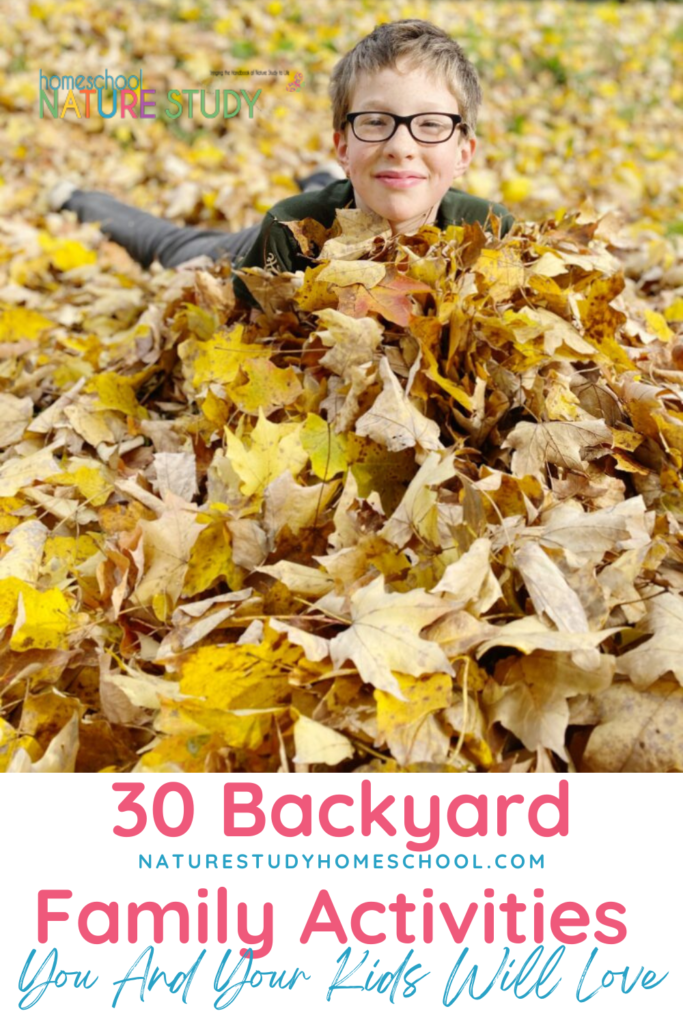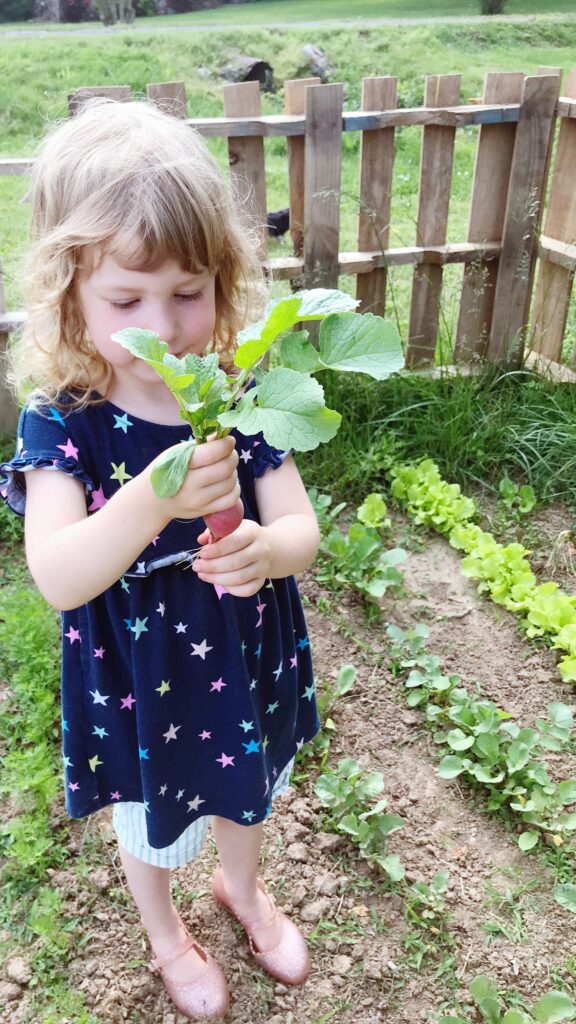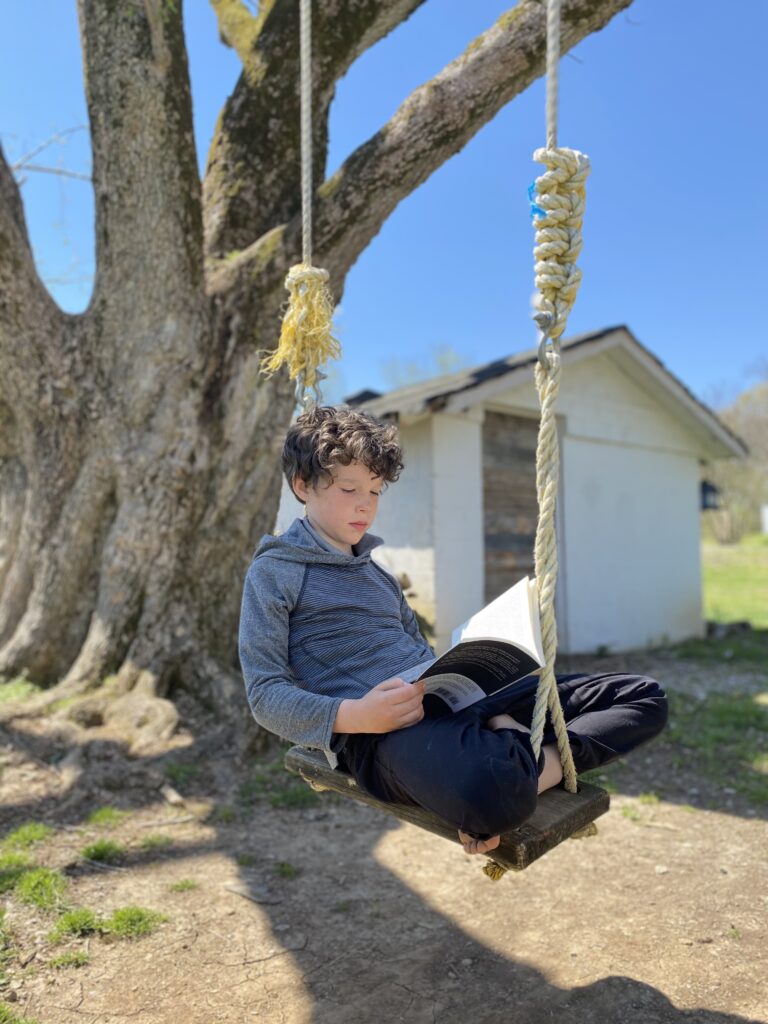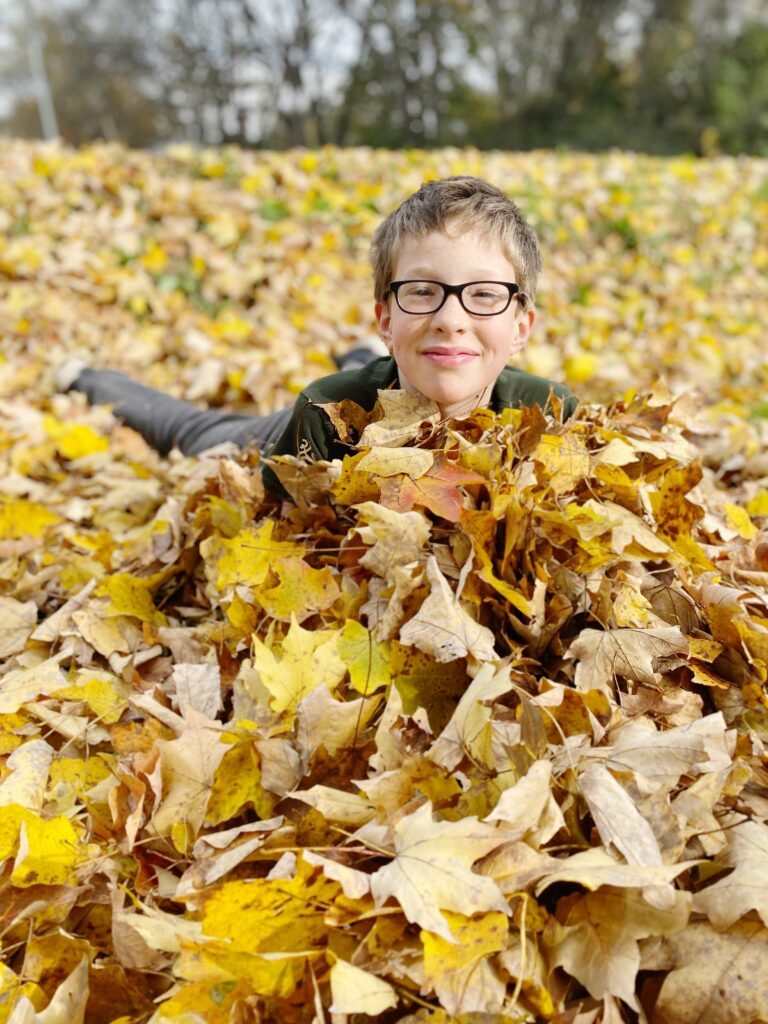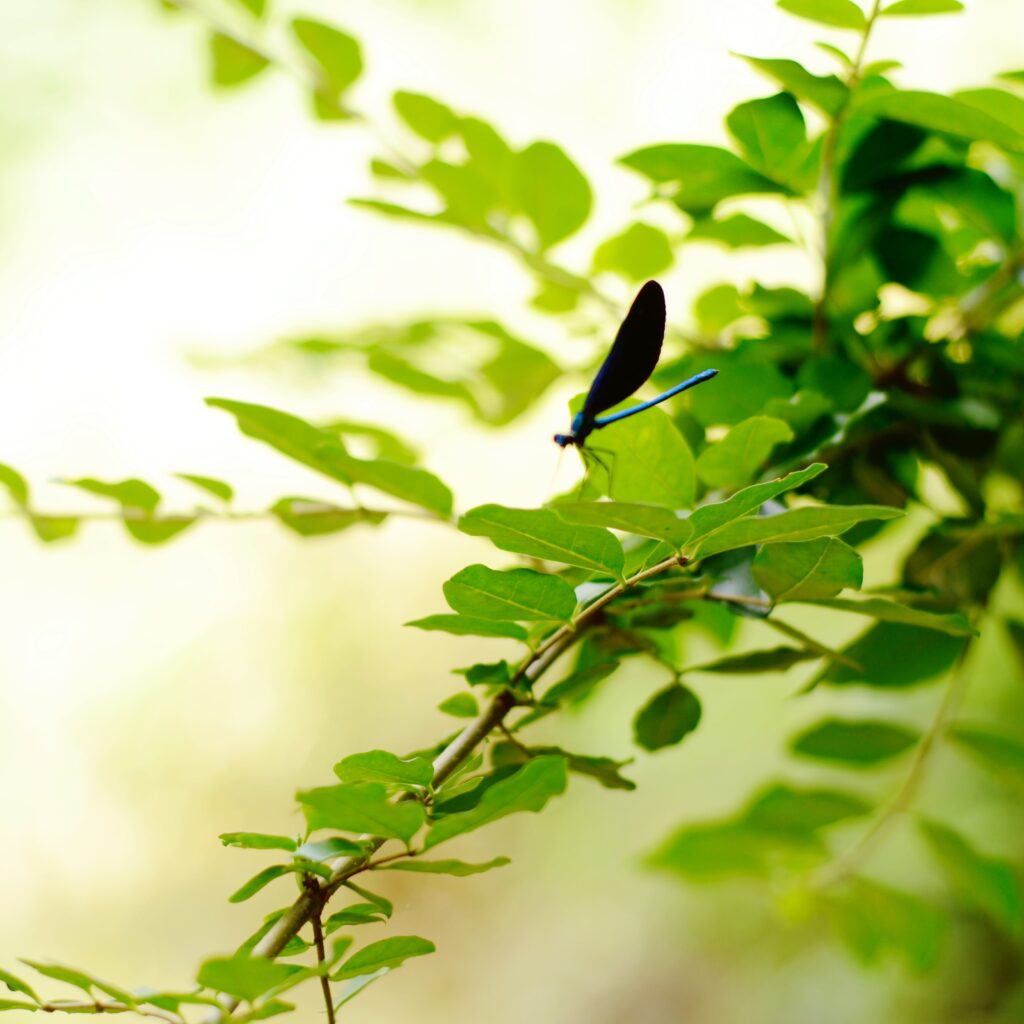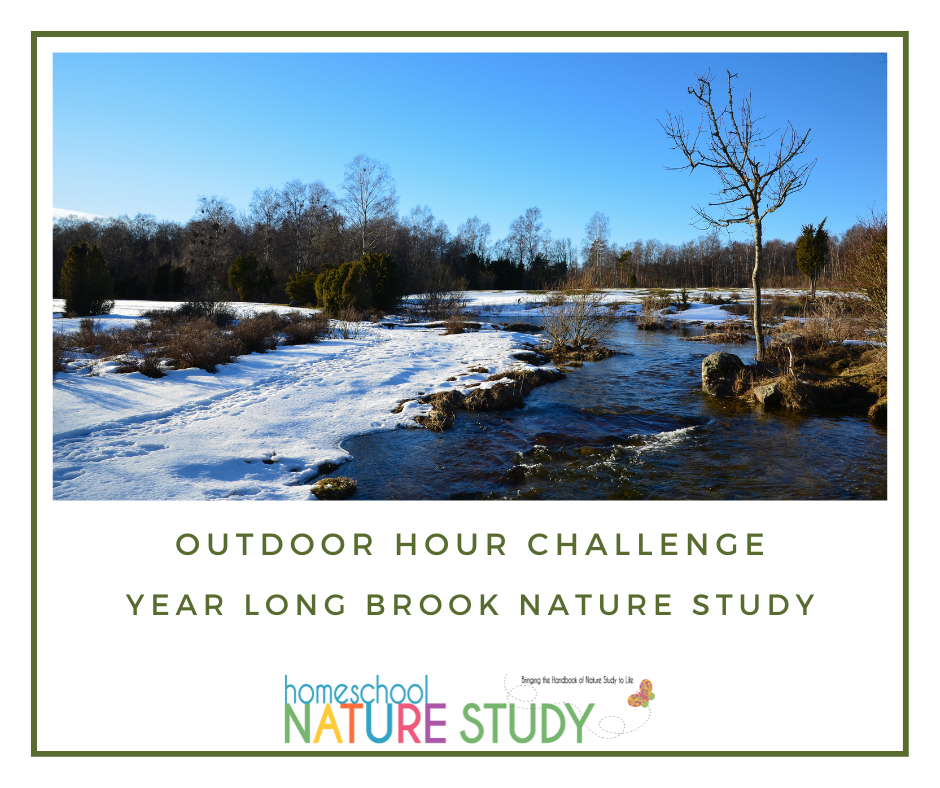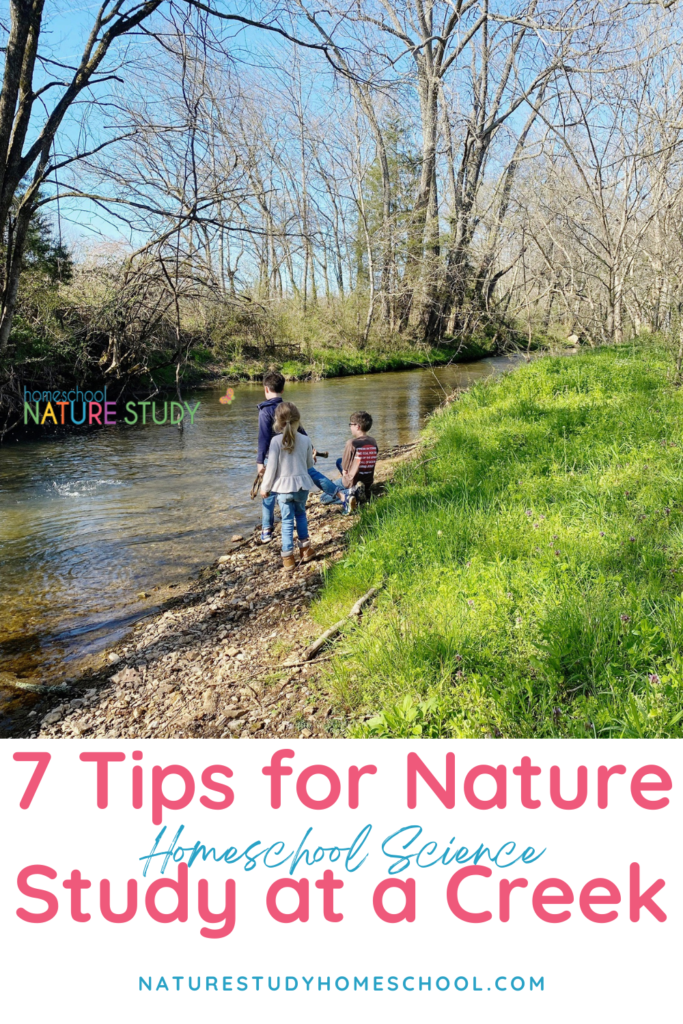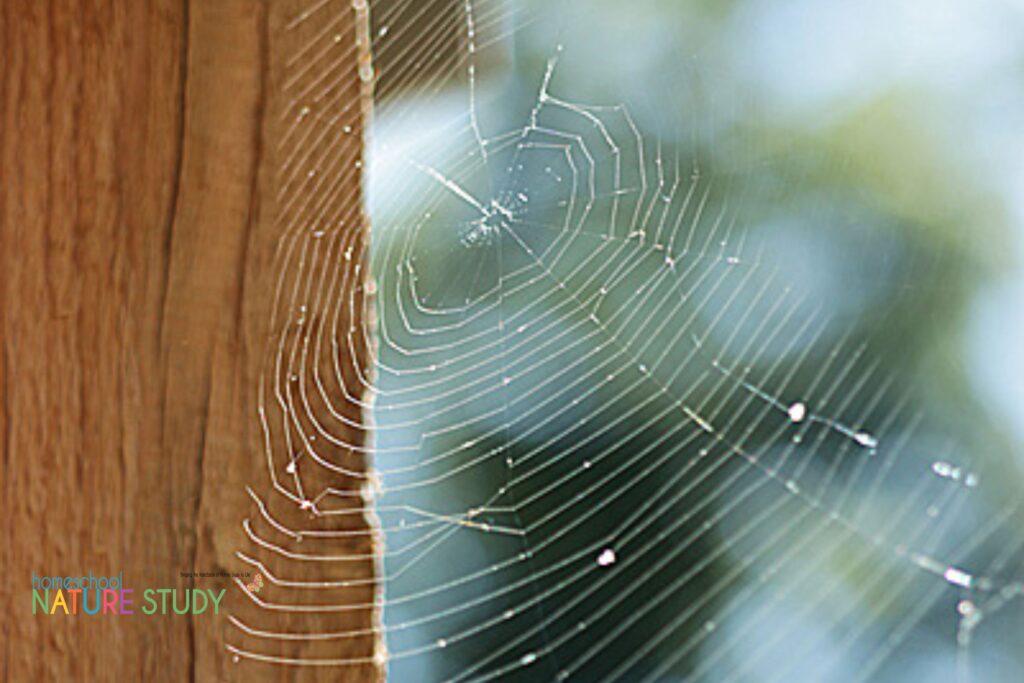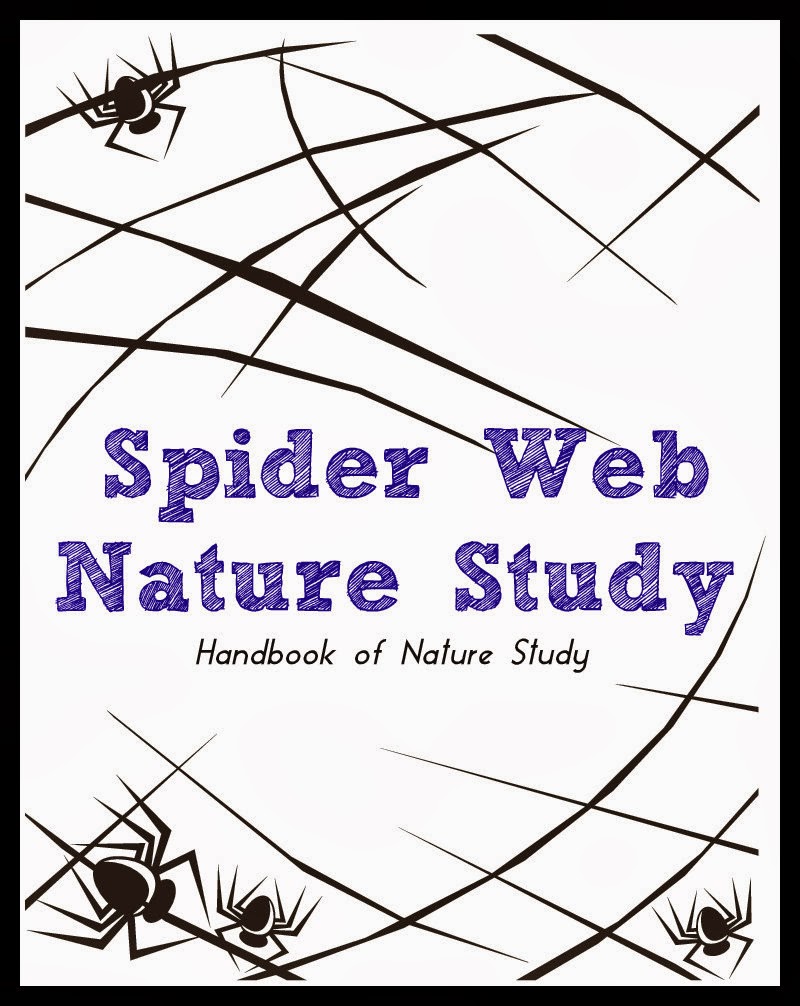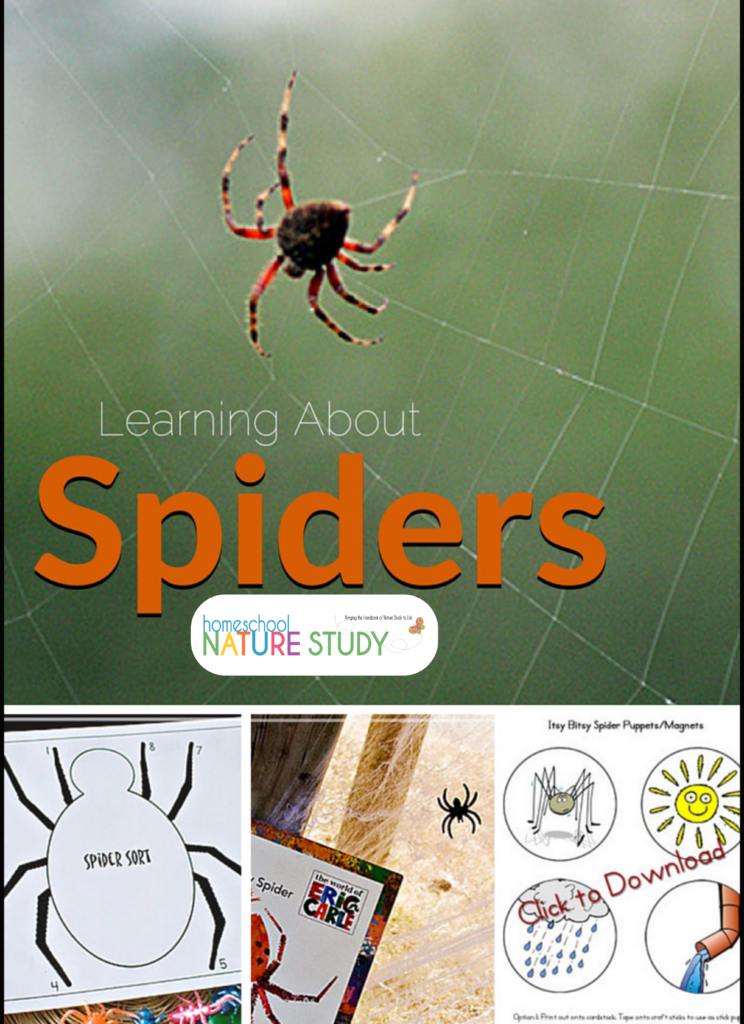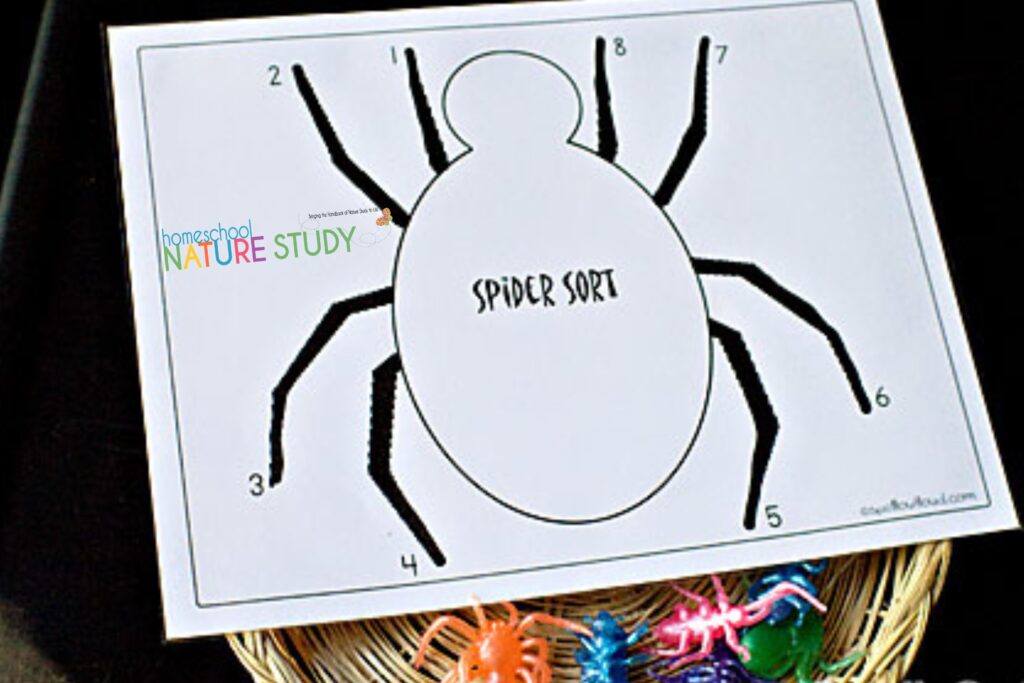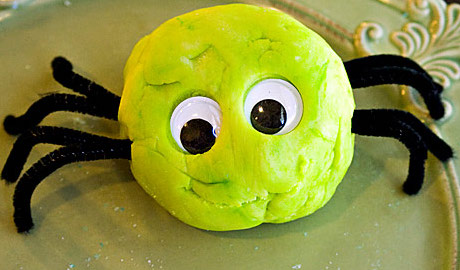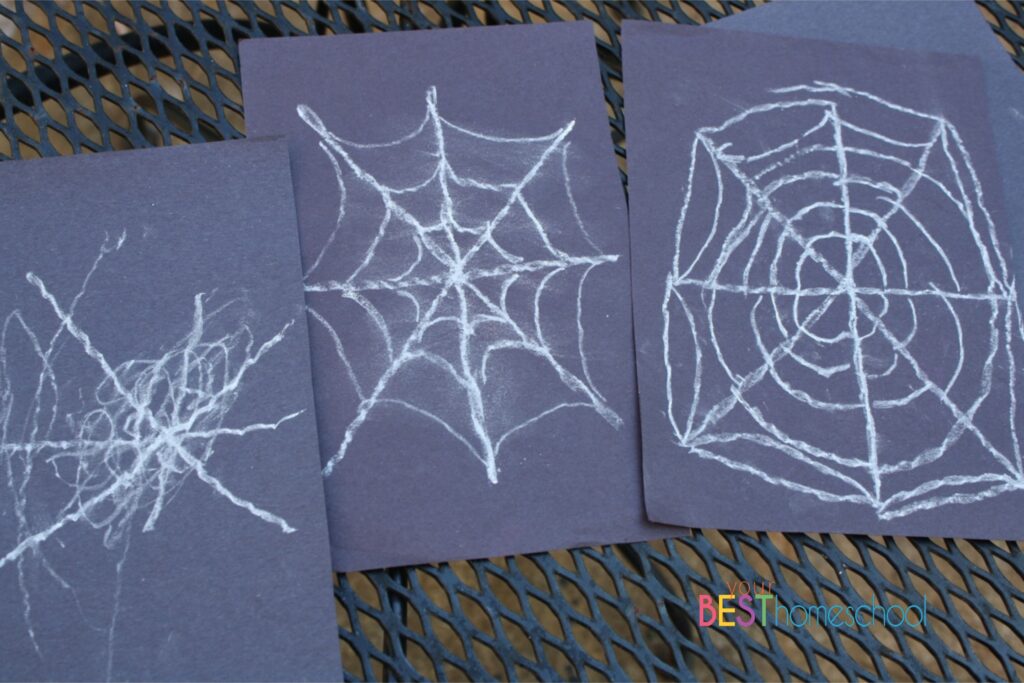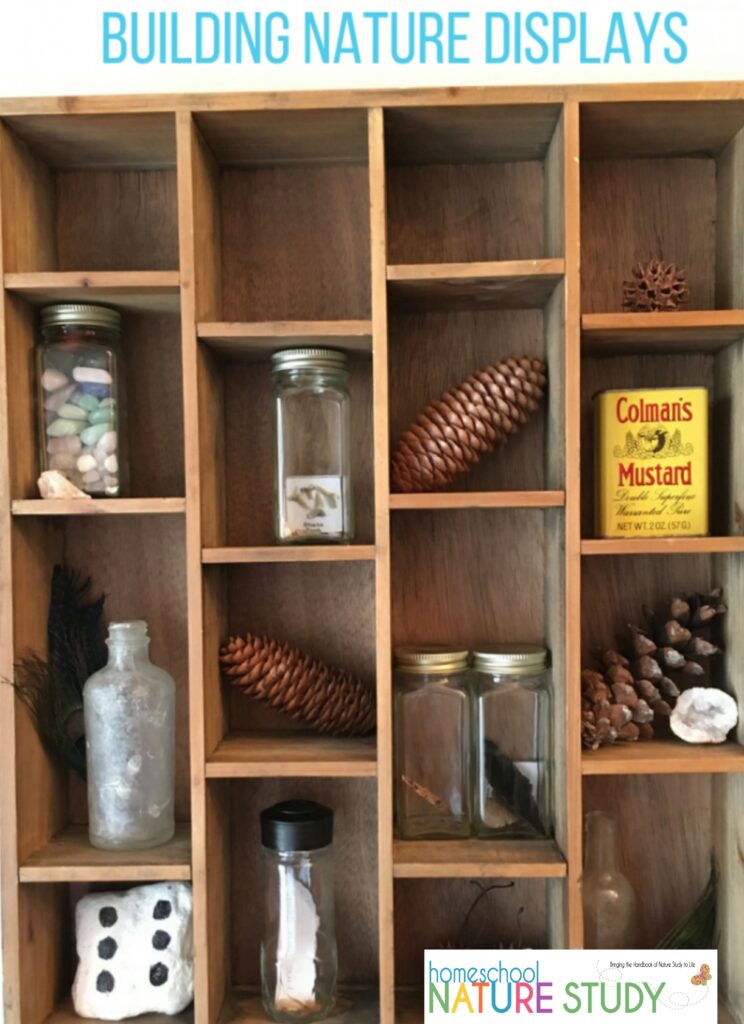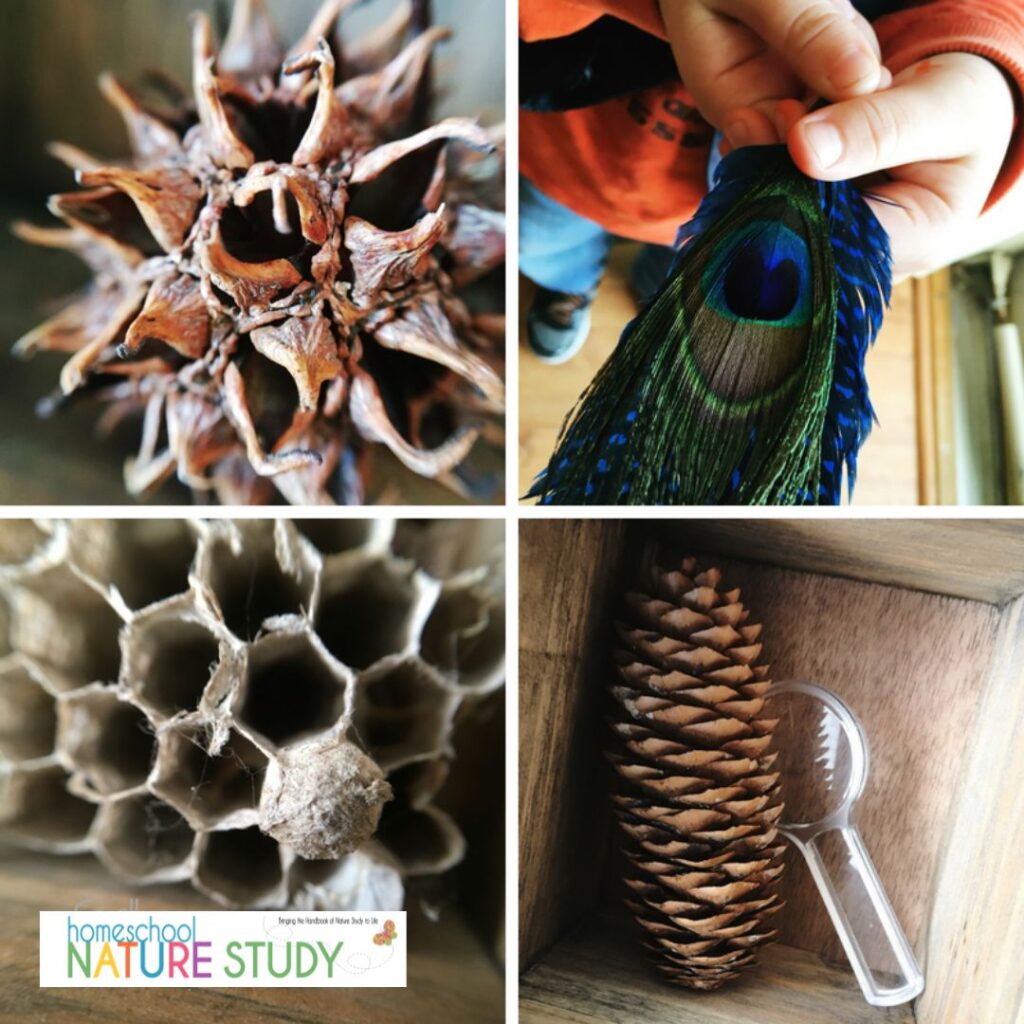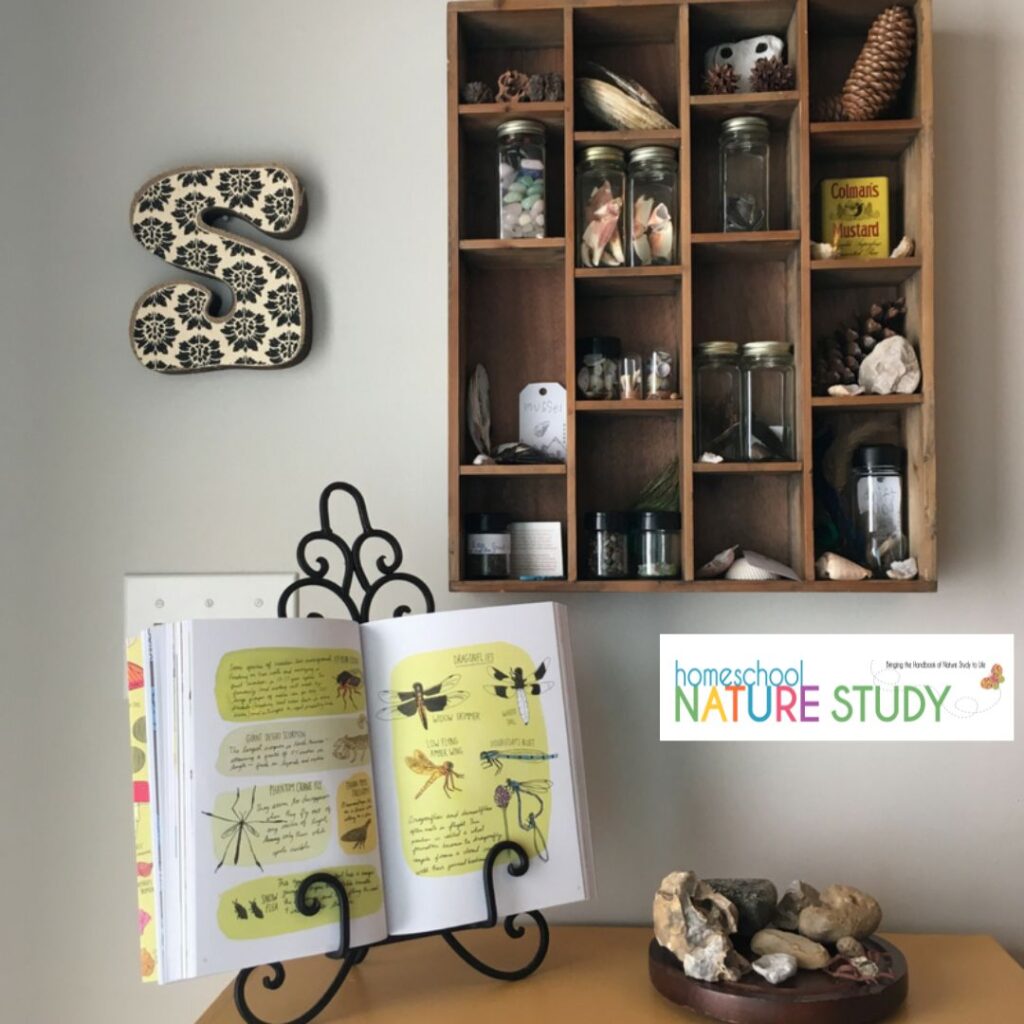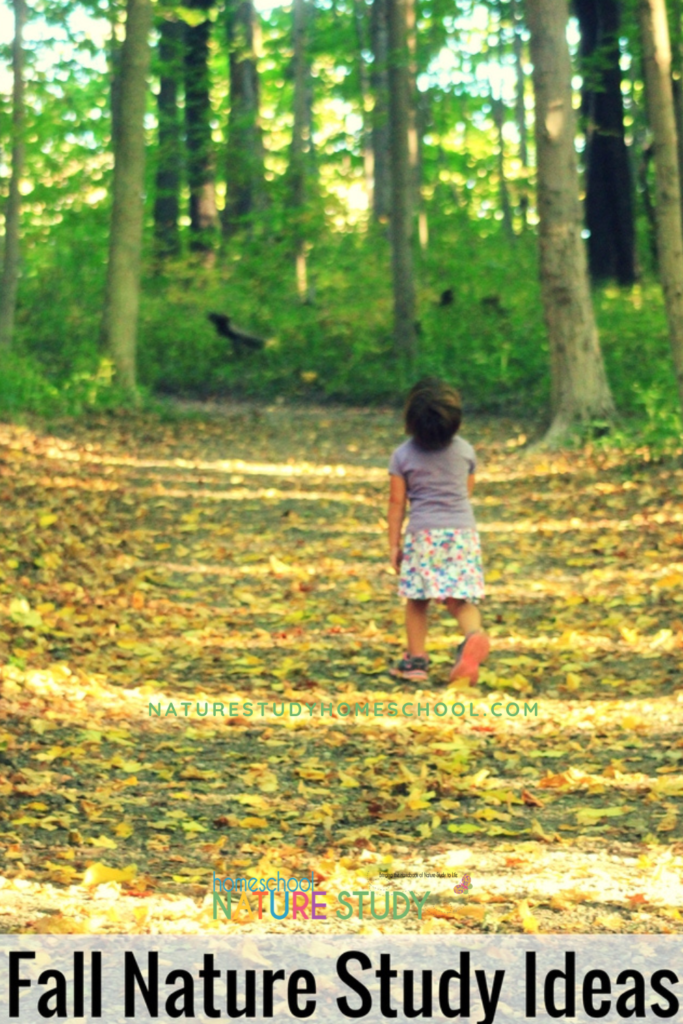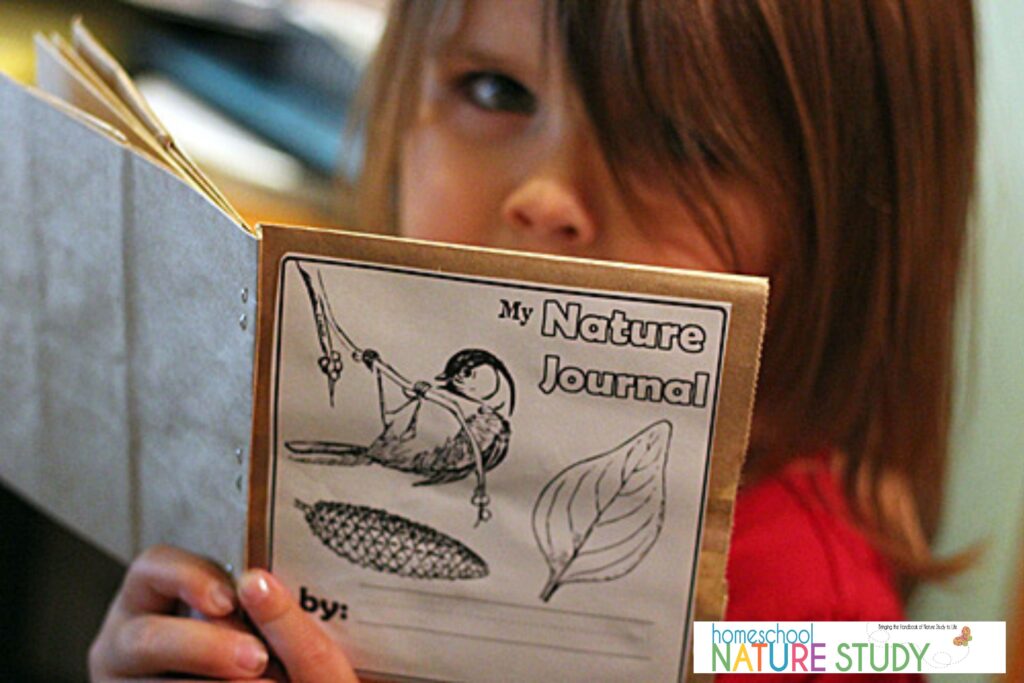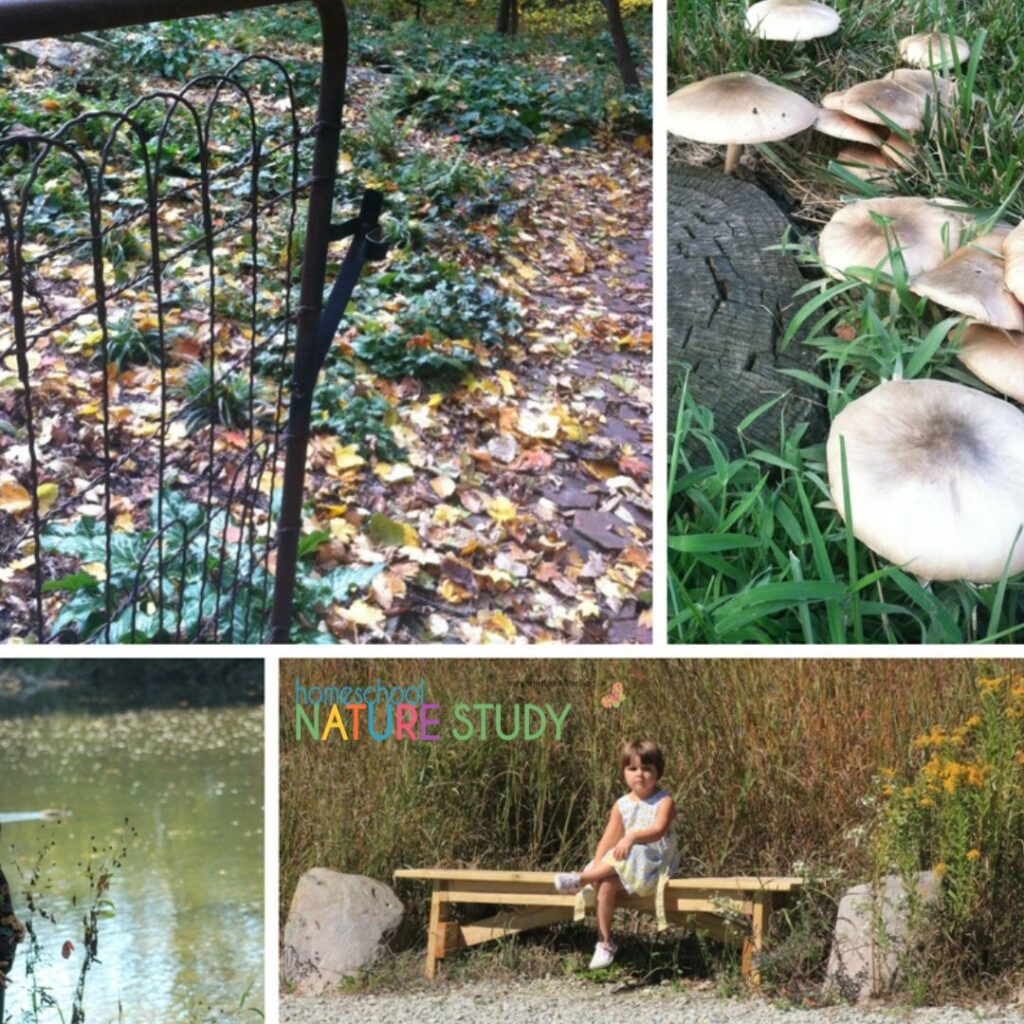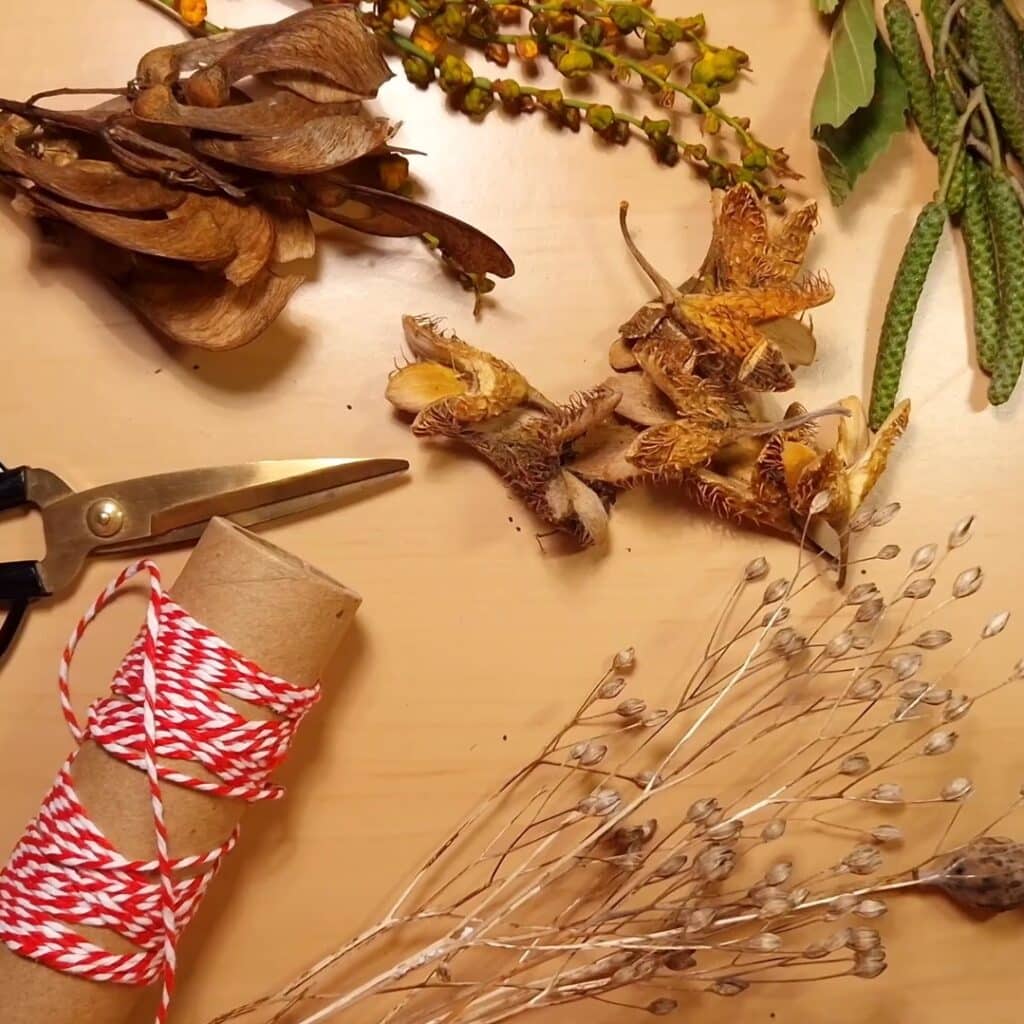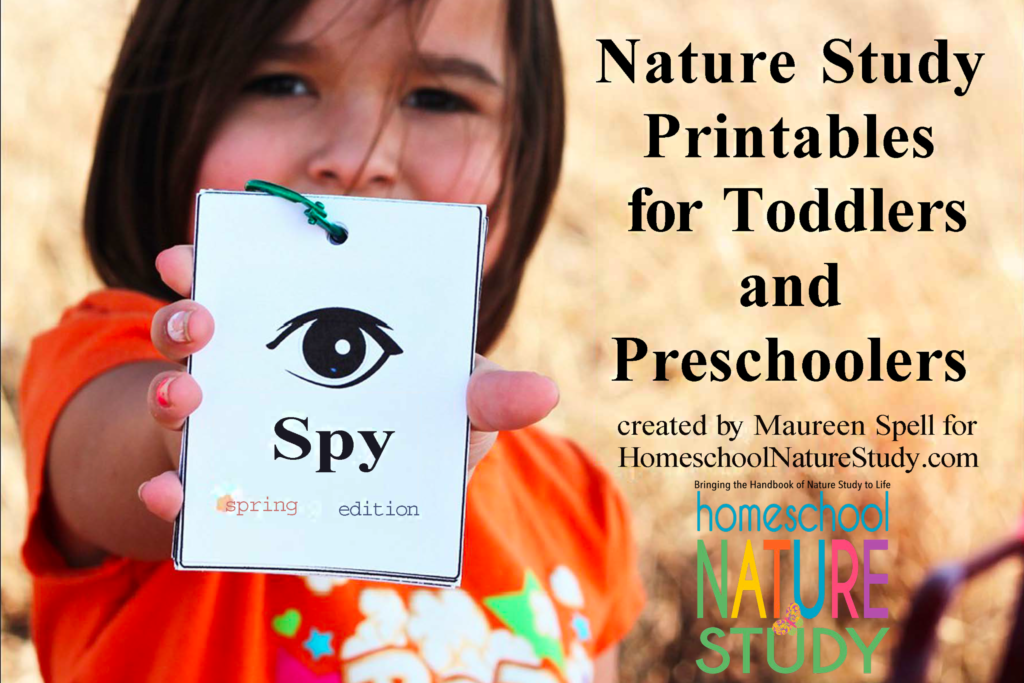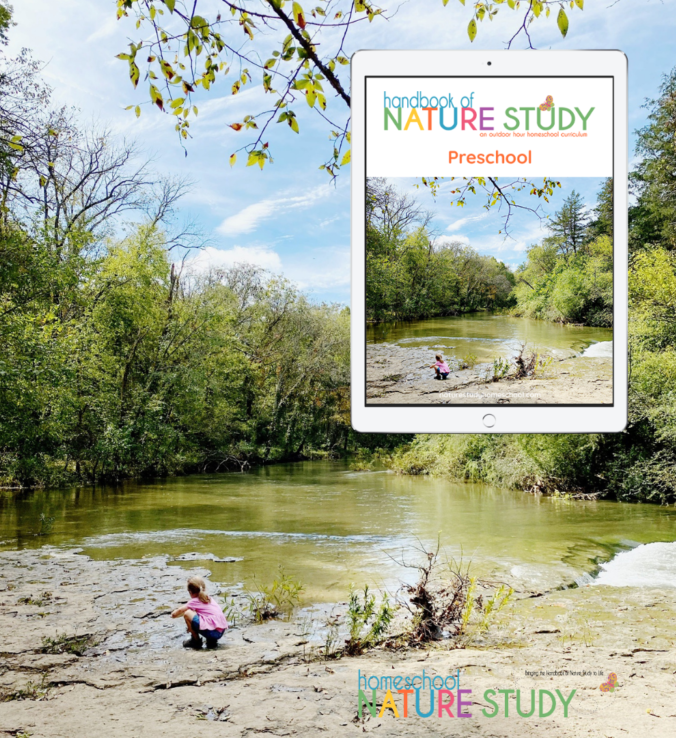Find some helpful advice and delightful resources for planning for nature study in your homeschool and making your goals into a clear plan.

Planning for Nature Study in Your Homeschool: How to Make a Plan and Set Goals for Your Family
Hopefully by now, dear readers, you have the desire to make nature study a regular part of your family’s lifestyle. You may even have the goal to do some incredible things for nature study.
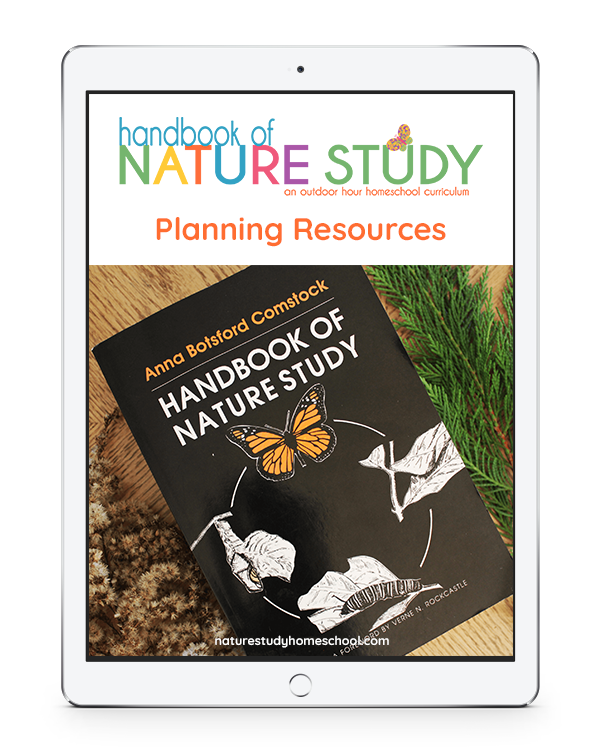
Choose a Plan that Makes Sense for Your Family
There are many ways to go about planning a more formal schedule for nature study. Typically, families plan their nature study either by the month or by the school term (usually 4 terms per year). Either way is easy to do using the nature study planning pages available in Homeschool Nature Study Membership.
Members here on Homeschool Nature Study with the Handbook of Nature Study have access to a printable set of planning pages that would be helpful to download and save for future use. I will be referencing these pages in this entry.
Monthly Topics Homeschool Nature Study Plan
Use this approach if you prefer to have monthly nature study topics. I loved the years that we stuck with a topic for a whole month, digging in deeply. Gather ideas as you contemplate your seasons and habitat.
Keeping your focus to one broad topic a month gives you plenty of time to study several specific subjects, take a few nature walks with this focus in mind, and then create nature journal entries as a way of following up.
You can glean ideas for specific topics by clicking the tabs at the top of our website and checking the Homeschool Nature Study Membership for additional ideas and printables.
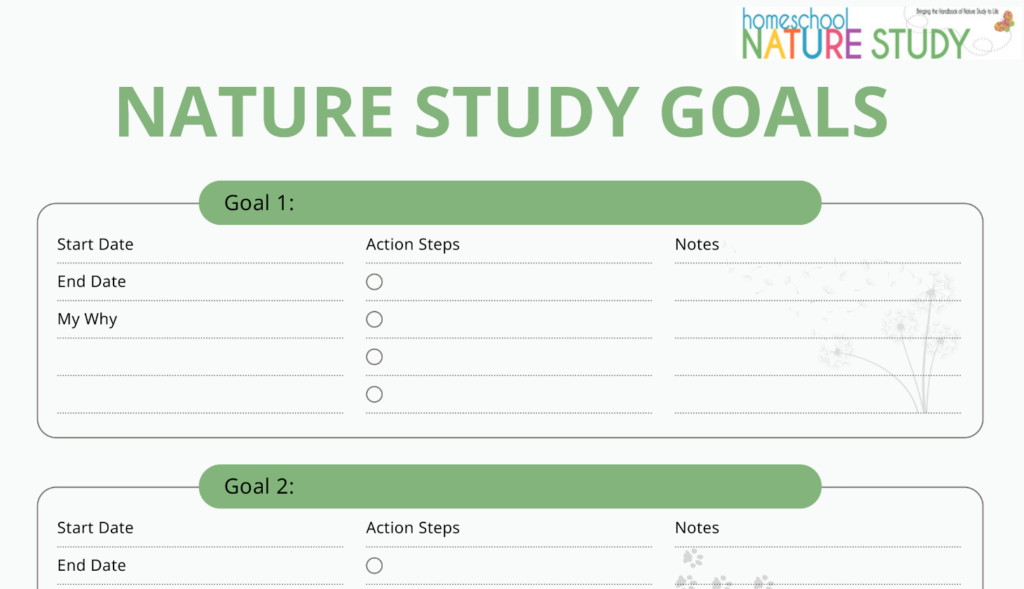
Seasonal or Term Topics Nature Study Plan
Some families like to schedule their nature study focus for a complete term or season. If you follow the Ambleside Online nature study rotation, you could use our planning pages to plan your year’s topics.
After you have chosen your topics, either monthly or for a term, you can then use the challenge and activity planning page found in the packet to note specific challenges or ideas that you want to implement during your topical study. For example, gather ideas that you hope to study with your children after choosing the topic of trees.
Planning ahead of time will make it more likely that they will happen. You can use ideas from the tabs at the top of the website, suggestions in our email newsletter, or ideas found in the printables list.
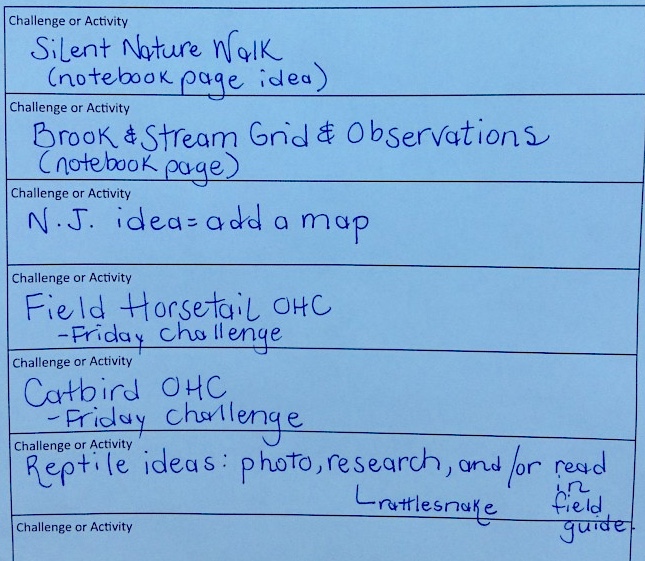
Here is another sample showing how to break down a month’s nature study ideas using the Outdoor Hour challenge, printables, and newsletters from Homeschool Nature Study Membership.
Customize Your Monthly Nature Study Plans
Think of all the nature study ideas as ingredients. There are many options for your nature study recipe. Pick the ones that suit your family and your taste. Add them to the planner page and use that to remind you of your options for the month.
Don’t feel like you need to complete all the things you list on the planner page. But creating the list will make it more likely your family will accomplish something during the month. Celebrate the things you are able to share with your family and look at this as a lifelong journey, taking one month at a time.

- Homeschool Nature Study Membership – Look in membership courses and lessons for topics that you may wish to include in your monthly studies. Read through the ideas presented and pick a few to put on your monthly planning page. Make sure to look on the planning page for nature photo ideas, nature table suggestions, and nature journal topics to jot down on your monthly planning page.
- Outdoor Hour Challenge Curriculum – Once you pick a topic, use the search bar on the blog and in your membership to find all the Outdoor Hour Challenges for that particular topic listed. Next to each topic, the specific ebook curriculum will be noted. Download and save the ebook curriculum from your Homeschool Nature Study membership for your family to use for your study. In the ebooks, you will usually find a custom notebook page to use as a follow up.
- Printables –There are many printables in Homeschool Nature Study membership for every topic you may wish to study. Download and save the printables for your future use.
- Seasonal Ideas – Use the seasonal ideas from the website to find one or two seasonal ideas to pick from for your family.
- Once a Month Nature Journal Idea – Use the ideas in the Nature Journaling course in membership to create a nature journal page for any of the items listed above.
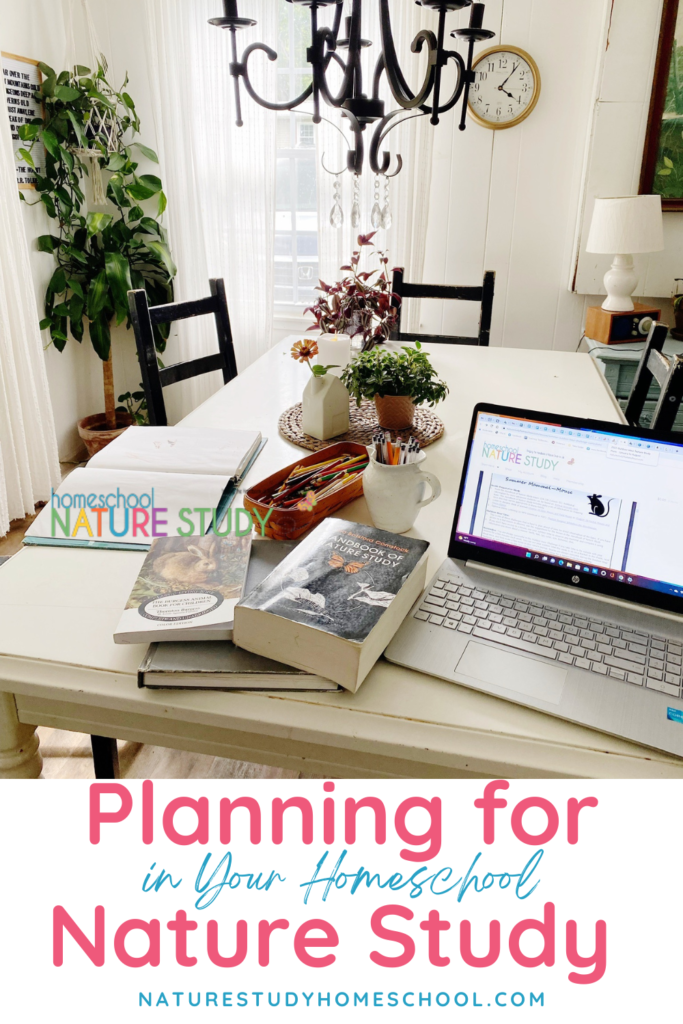
Nature Study Goals and Homeschool Planning Ideas
I’ve found it hugely helpful to have yearly nature study goals. Each year I pick a few things to focus on as part of my personal nature study. There are families that like to make these goals and record them in their nature journal as a way of keeping themselves accountable.
Keeping a Calendar of Firsts – with FREE Calendar Page! – It’s a simple way to learn the cycle of life in your world, noting the nature firsts that catch your attention each year. Comparing the dates of the firsts in nature will give you a more accurate telling of the passage of time.
Planning and Dreaming for the New Year – In the nitty gritty of checking things off, I urge you not to lose sight of the long term goal.
Homeschool Planners and Planning Resources – This collection of homeschool planners and planning resources is sure to spark some ideas and help you streamline your homeschool planning process!
Have a Back to Homeschool Planning Date – There’s just something special about designating time for just the two of us to talk. I thought you might like to know more about this simple idea, too.
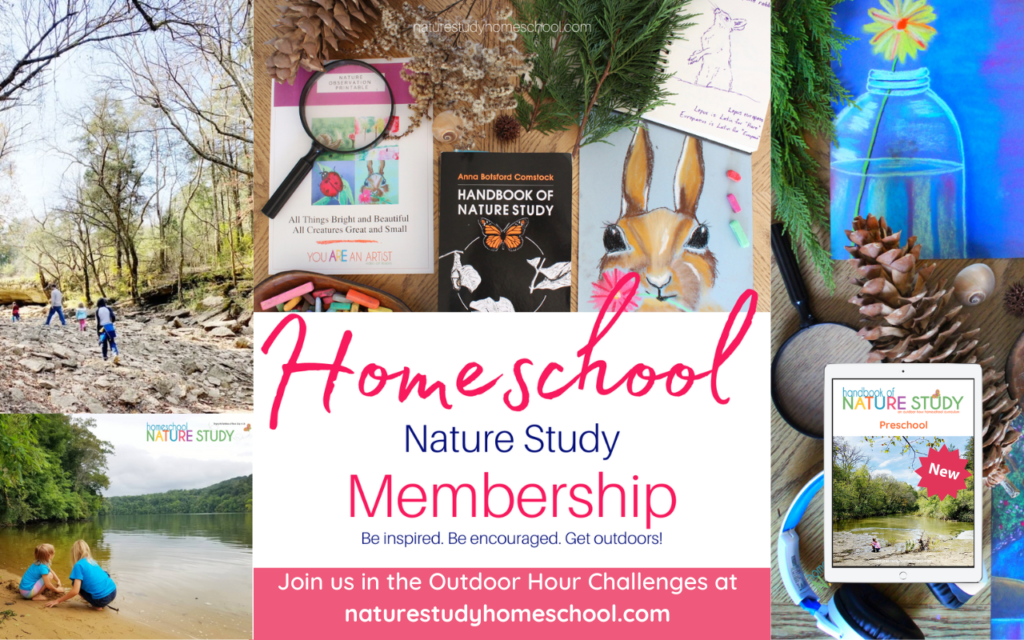
There are 25+ continuing courses with matching Outdoor Hour curriculum that will bring the Handbook of Nature Study to life in your homeschool! In addition, there is an interactive monthly calendar with daily nature study prompt – all at your fingertips!
Join us for even more homeschool nature studies for all the seasons! With a new nature study each week, you will have joyful learning leading all the way through the homeschool year for all your ages!
Written by Barb, founder of the Outdoor Hour Challenges and updated by Tricia

